The Udayagiri and Khandagiri caves in Bhubaneshwar were built in the 2nd century BCE by King Kharavela to serve as residential blocks for Jain monks. They are built on two adjacent hills which used to be known as Kumari Parvat, but are now referred to as Udayagiri (meaning "Sunrise Hill"), which has 18 caves, and Khandagiri (meaning "Broken Hill") having 15 caves.
There is a long history of Jainism in Orissa. The 23rd Tirthankara, Parsvanath, had done considerable preaching in Orissa in the 8th century BC, while the 24th and last Tirthankara Mahavira had visited the ancient Kalinga capital of Toshali. King Kharavela of the Chedi dynasty had patronised Jainism and built these caves. Even after the death of King Kharavela, Jainism continued to hold sway under his successors.
It takes around a couple of hours to visit the caves. Since they are scattered across two hills, one gets a nice view of the surrounding landscape while walking around. Monkeys abound here, but they dont bother the visitors unless they are carrying food items. Aesthetically, the caves do not match up to the Buddhist caves of the same period, but are, nevertheless, priceless ancient treasures.
 |
| The entrance to the Udayagiri caves |
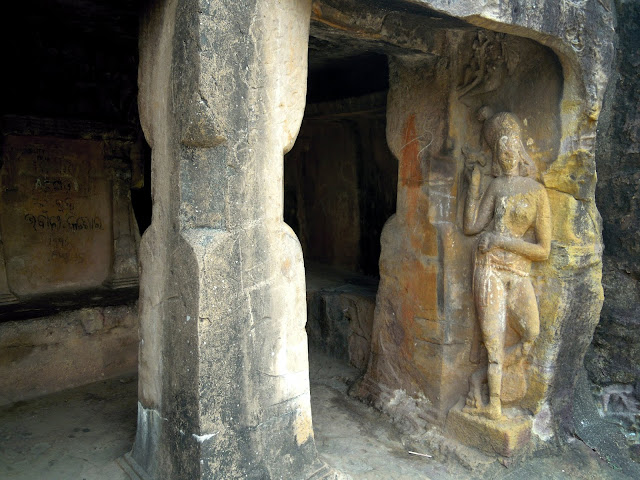 |
| The Jaya-Vijaya cave. Jaya and Vijaya are the two dwarapalas (door-protectors) in a Vishnu Temple. |
 |
| I noticed a lot of graffiti on these caves. I wonder why the ASI is unable to remove the graffiti. |
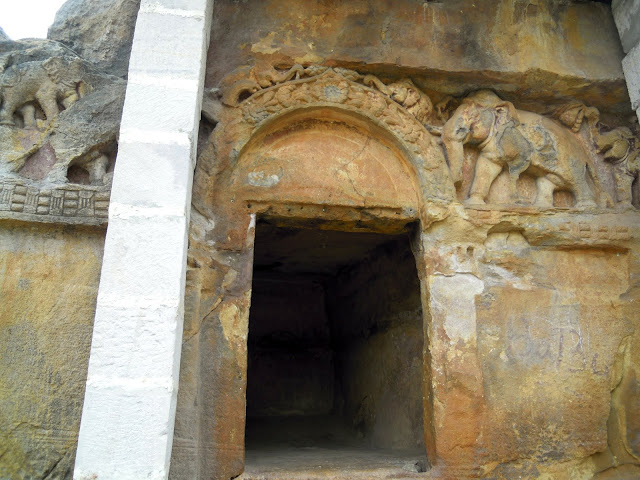 |
| The Chota Hathi Gumpha (Small Elephant Cave) named so after the elephant figures on the facade. |
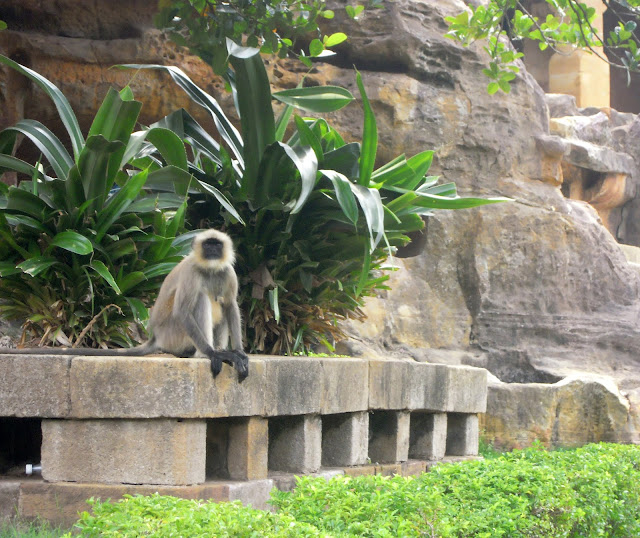 |
| This fella was giving me mean looks... |
 |
| The Vyaghra Gumpha (Tiger Cave)...looks to me like an anaconda swallowing up its victim. |
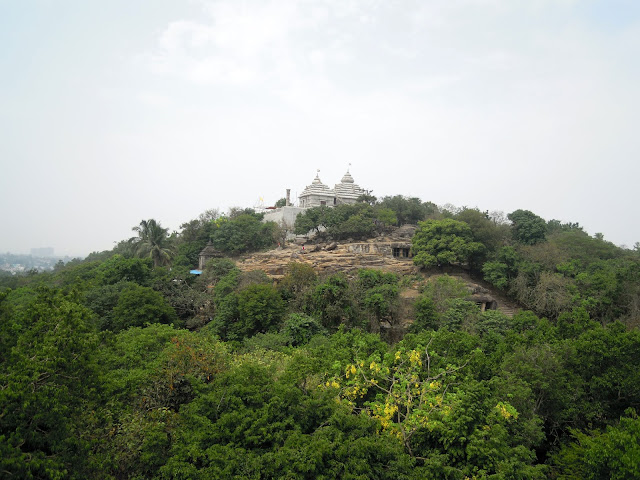 |
| A view of the Khandagiri caves on the adjacent hill, with a recently built temple on the summit. |
 |
| Lots of monkeys on the hill. Be careful not to carry eatables or they may be snatched away. |
 |
| "Lanka, here I come!" |
 |
| The Ganesha Cave. The entrance is flanked by elephants carrying garlands. |
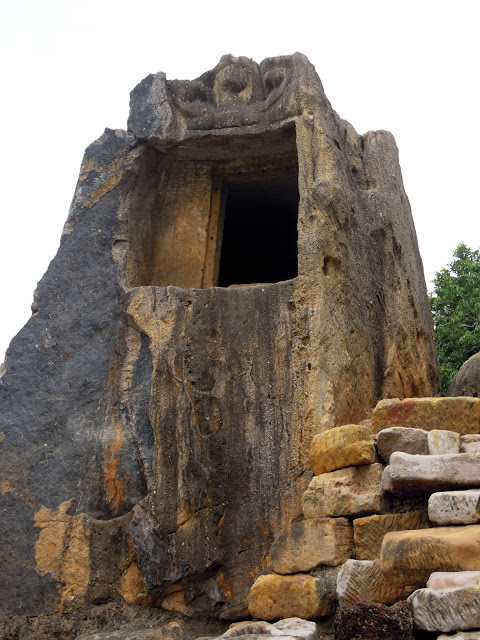 |
| It would have taken a very athletic monk to reach that cave! Perhaps, there used to be dangling rope ladders? |
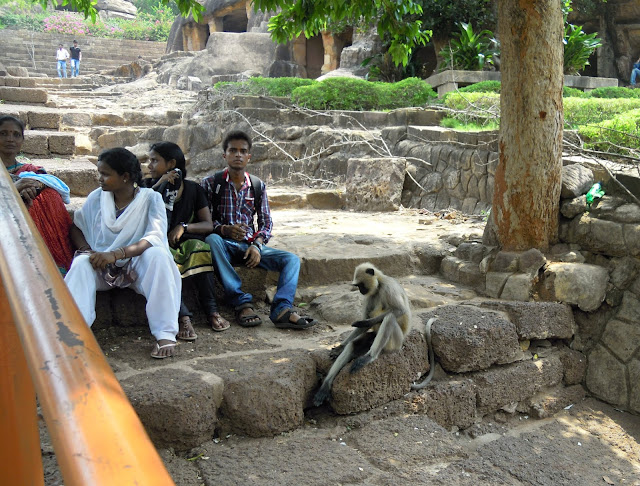 |
| "Its not yet your time folks" |
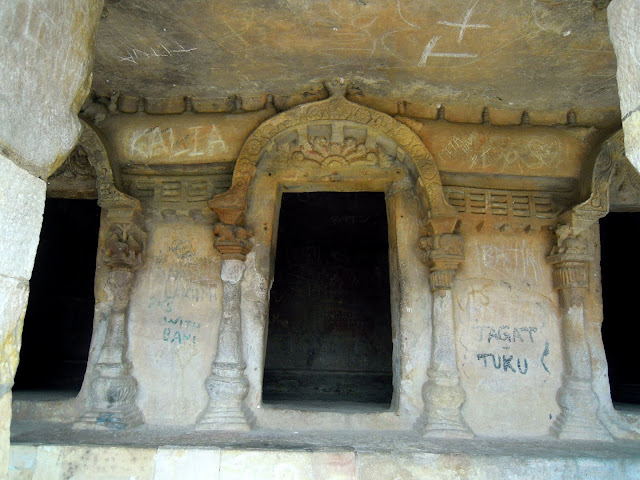 |
| Lovely arched entrances...but the graffiti is irritating. |
 |
| Notice the multi-hooded serpents on either side of the arched entrance. |
 |
| A view of the Udayagiri caves from Khandagiri. |
 |
| A Swastika symbol. This is one of the earliest Swastika signs of the historical period of India. The Swastika, of course, has been found in large numbers in the Indus Valley sites. |
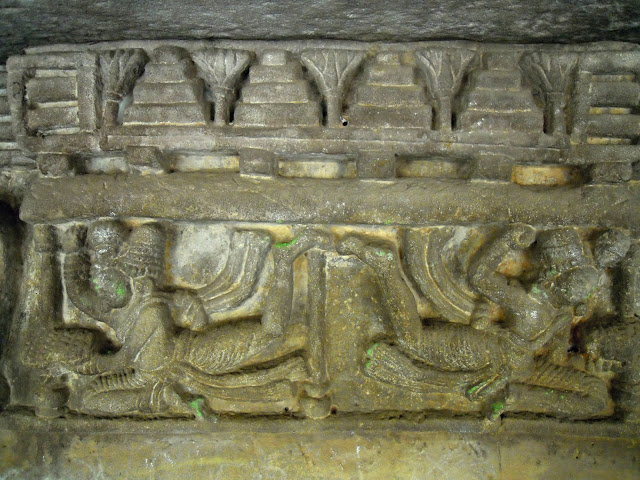 |
| The stepped-pyramid was a popular design in Buddhist and Jain art. |





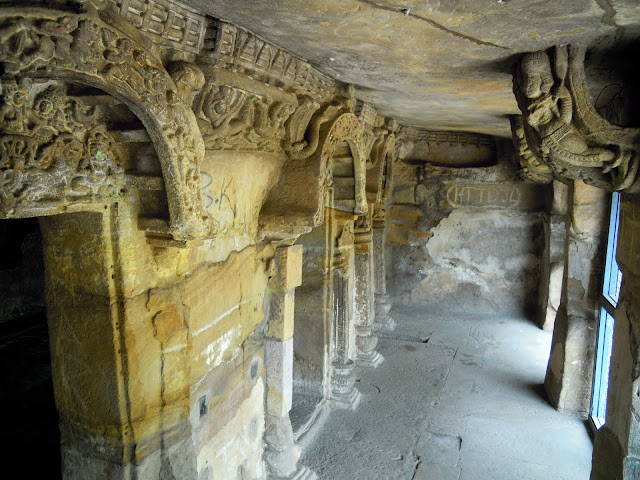

Post A Comment:
0 comments so far,add yours